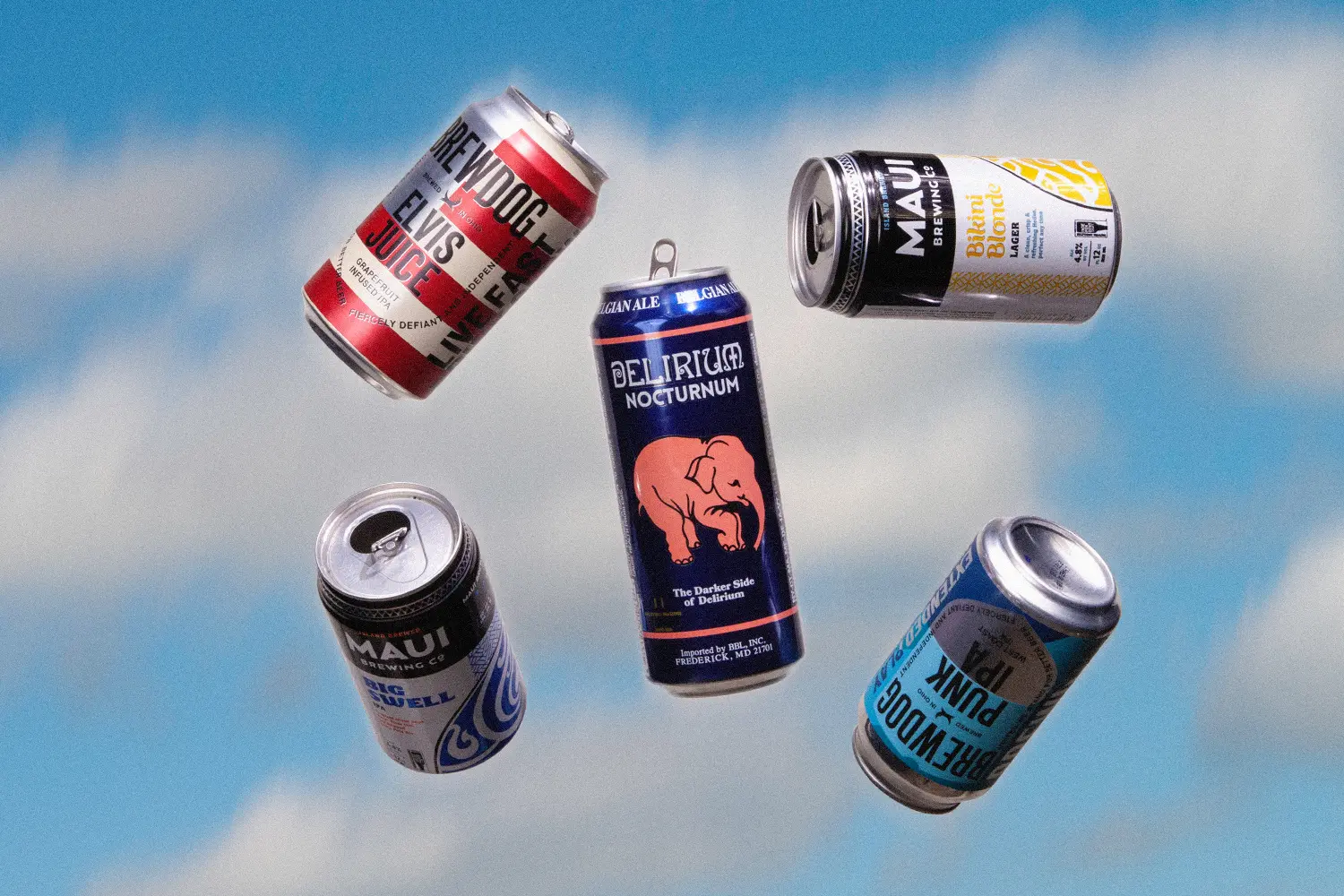Craft Beer's Green Leaders
Sustainability in craft beer is no longer on the fringe
Written by Lesli Gegen
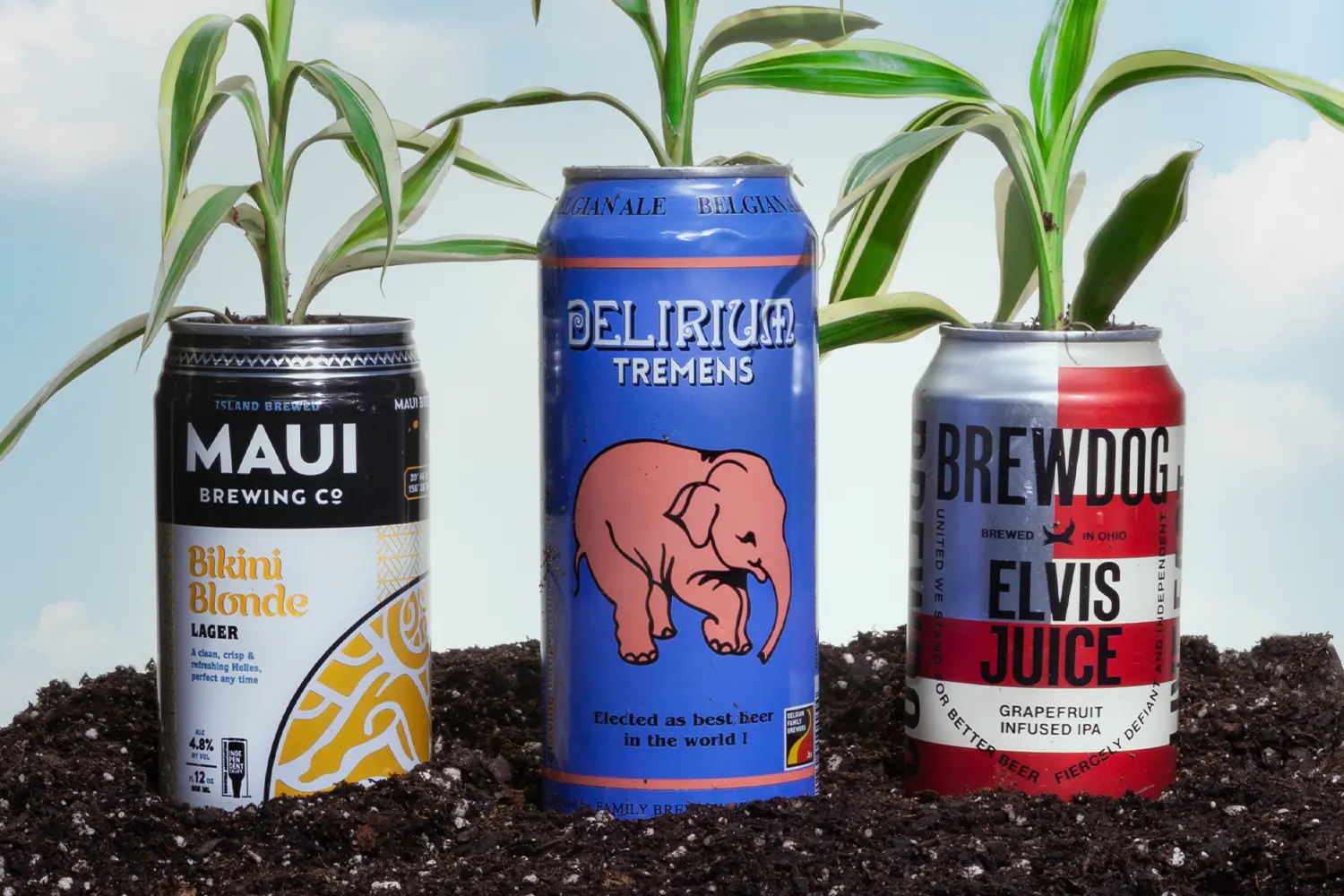
Brewery Huyghe, Maui Brewing and BrewDog aren’t newcomers to the craft beer industry. In fact, Brewery Huyghe, best known for Delirium Tremens, has been brewing Belgian beers for more than three centuries. What has changed over the last fifteen years though, since the youngest of them came onto the scene, is the urgency around environmental sustainability. While each of these breweries has their own reasons for taking on large sustainability initiatives, there’s no doubt that they’re all at the forefront of the movement, leading the way for more sustainable brewing and setting an example for others to follow suit. Others who, in craft beer, increasingly are.
There’s no doubt that the momentum is building. In 2013 the Brewers Association, a trade group designed to promote and protect small and independent craft brewers in America, instituted a formal sustainability program to build upon the work that they had been doing to support the movement. Although he wasn’t in his role when the program was formalized, Matt Gacioch, sustainability ambassador at the Brewers Association, does think that the growing interest played a role in formalizing the program. “The Brewers Association is a membership focused organization,” he shared. “So, the drive to start a new structured program would come from the members themselves.” In his role, Gacioch focuses on three primary areas – work tools creation to help member breweries track, evaluate and compare their efforts; educational outreach through speaking at conferences, hosting webinars and writing articles; and individual sustainability support for member breweries.

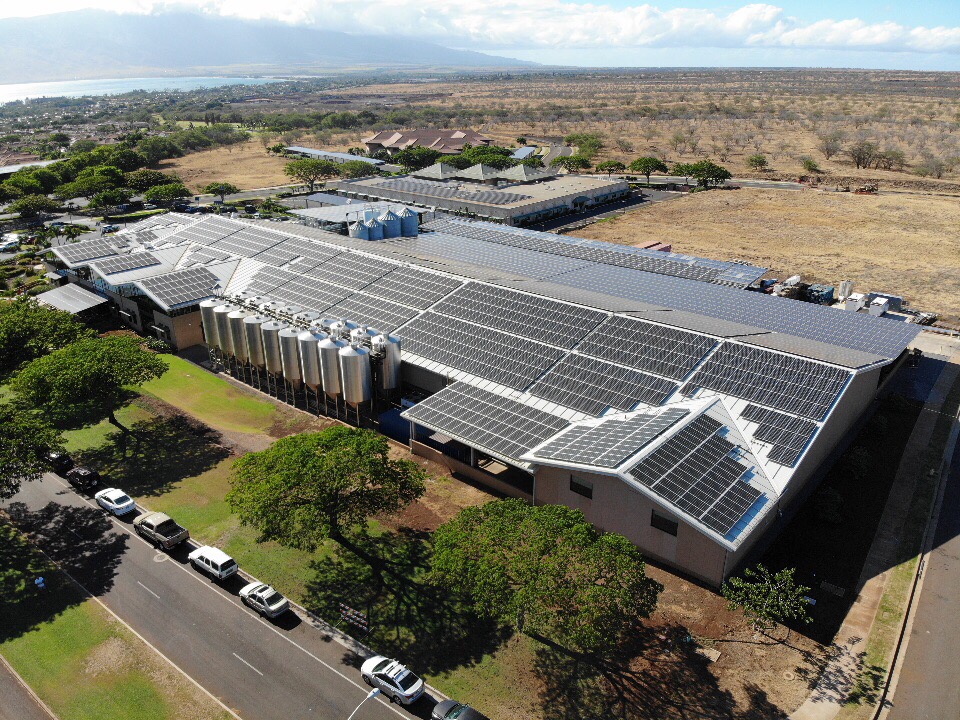
When evaluating sustainability, of course the first place that everyone is, and should, be looking, is within. However, what exactly that entails is different for everyone. “It’s tough to estimate the biggest environmental impact of breweries,” said Gacioch. “It really depends on where you are regionally. If you’re in an area where your electric grid is fueled by renewables, then you’re probably looking at your water use first. If you’re on the shores of Lake Michigan, you may be looking at energy.”
For Maui Brewing, given both Hawaii’s poor electrical grid and the fact that they felt it was the environmentally responsible thing to do, one of the first places they looked was toward solar power as they installed their first solar array in 2007. Flash forward to today where, depending on the month, 70-80 percent of the brewery’s power comes from the (now much larger) installation, depending on the month, and 100 percent of their power comes from self-sustaining, off-grid sources.
Meanwhile, Brewery Huyghe became the first brewery in Belgium, and likely much more far reaching than that, to reuse their wastewater. From one liter of wastewater, they can make .7 liters of drinkable water. Water which they use for rinsing, cleaning, and really everything except the beer itself. One, because the world may not be ready for that. But also, because the water is too pure. There are no minerals in it. So, what does this actually mean when it comes down to it? “In 2008 we needed 8.5 liters of water to make one liter of beer. Today, we only need 2.9 liters of water to make one liter of beer,” said Filip Devolder, brew master at Brewery Huyghe. “It’s so important for the next generation that we can cut down on our water use like this.” Current laws in Belgium prevent Brewery Huyghe from pulling wastewater in from other sources to repurpose; however, Devolder is hopeful that next year they may get the permissions to do so from a small group of outside breweries.
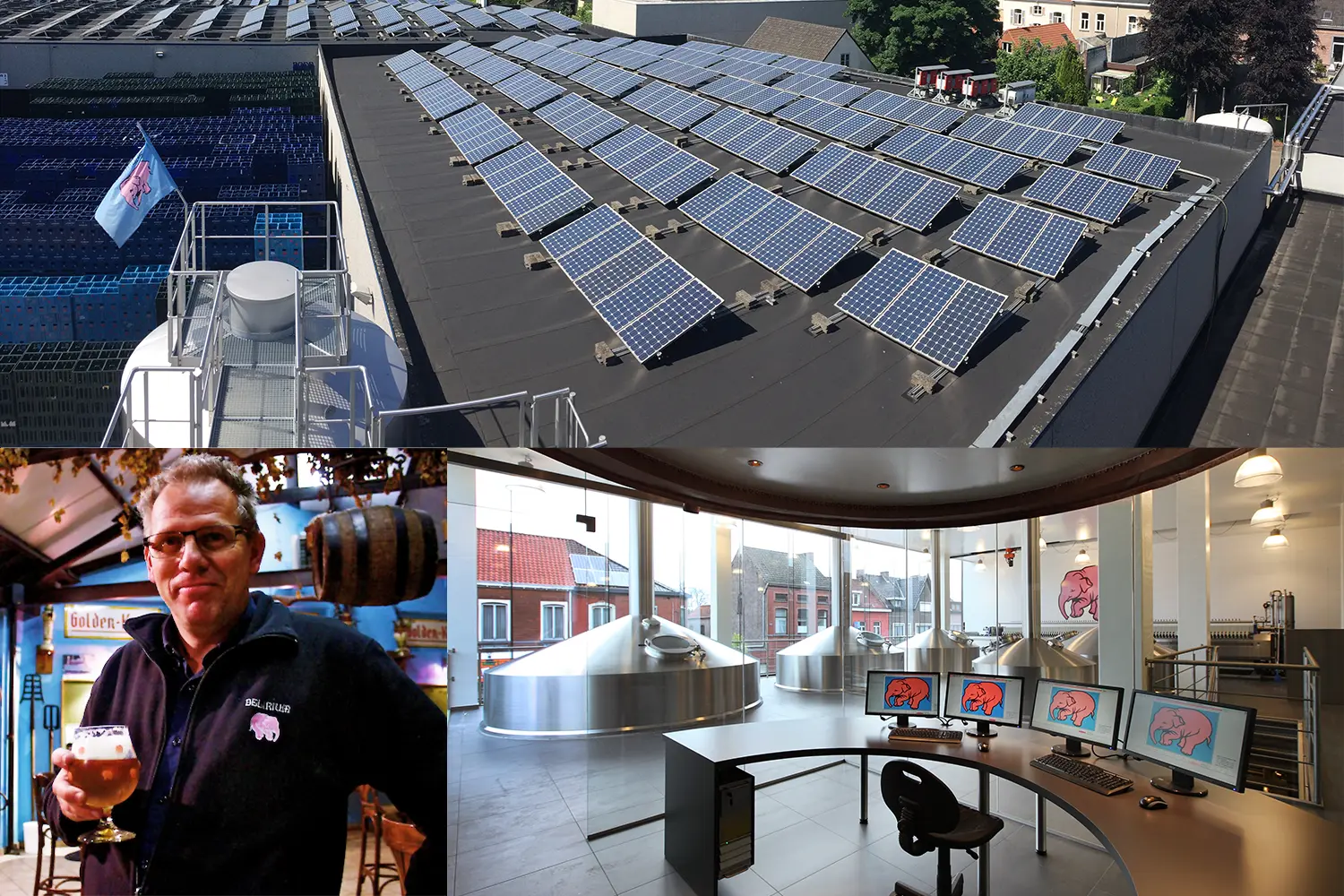
This conversion of wastewater also helps them save on electricity and energy. By creating a biogas from the wastewater conversion, they can use that biogas to feed the cogeneration, which in turn creates electricity. Then, to cool the engine in the cogeneration, they fill it with recycled drinkable water, which heats to 80 degrees Celsius (176 degrees Fahrenheit) and creates thermal energy. With the hot water, Brewery Huyghe can sterilize the stainless steel kegs used for the brewery’s draft beer.
UK-based BrewDog is making similar investments this year at their Ellon HQ in Scotland. “Emissions are our problem, and ours alone,” said Erika Wojno, U.S. director of marketing for Brewdog. Through a £12m investment in an on-site bioenergy plant, they’ll be able to recycle their used wastewater and generate bio-methane to power their system as well. But that’s not the only impact of this investment. As part of this project, they’re also installing compressors that will enable trucks carrying their beer south of the brewery to be powered by bio-methane that is generated from their waste.
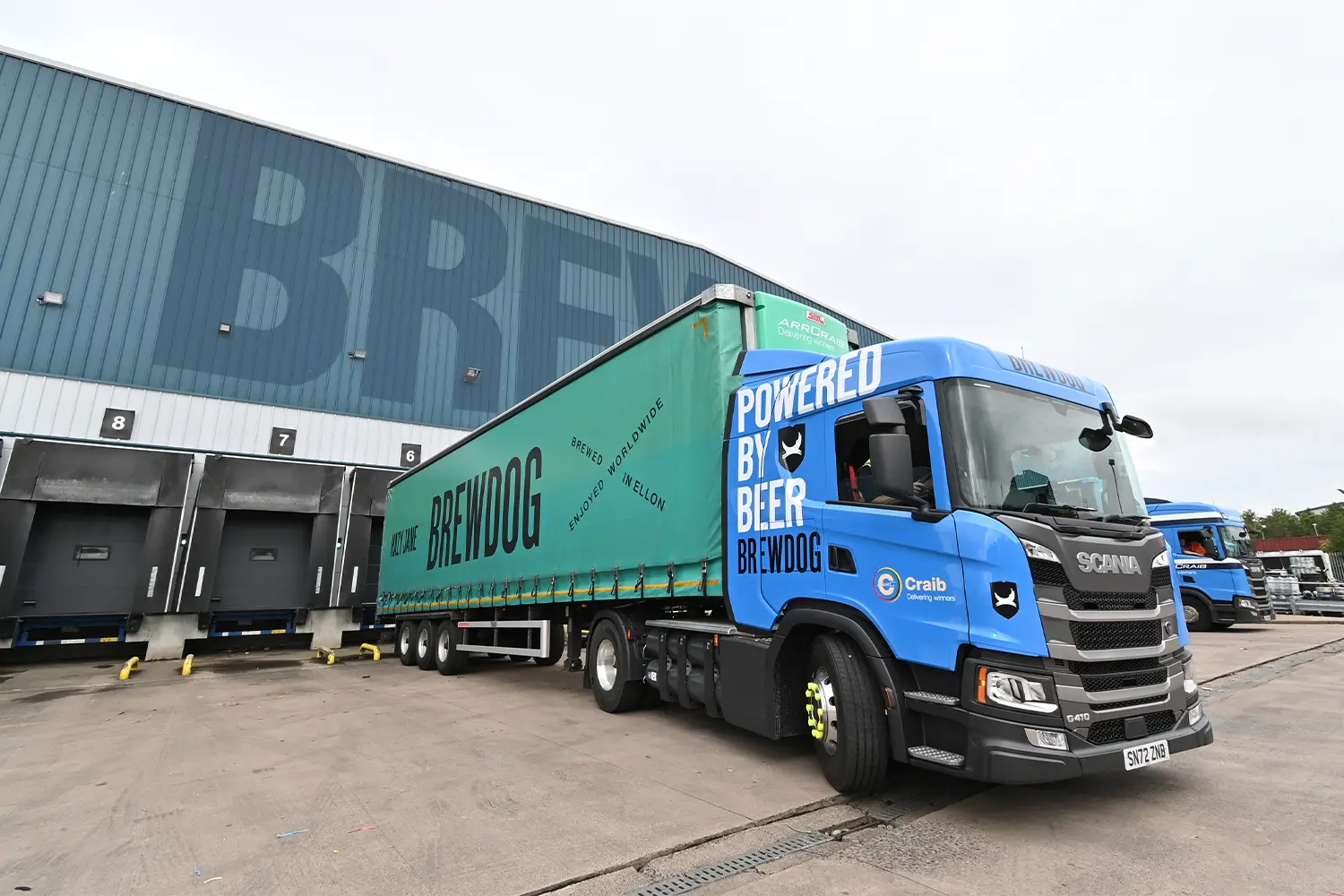
And, while they’re UK-based, they’re also brewing around the world to help reduce the impact of unnecessary transportation on the planet. One of those facilities is in Columbus, Ohio, where they’re in the final stages of bringing on a solar company to outfit the brewery with a solar installation big enough to cover all of the electric needs for the brewery. Like BrewDog, Maui Brewing has also recently started producing beers on the mainland as part of their sustainability initiatives. “For us to ship ingredients from Minnesota and Washington to Hawaii, to then turn around, process them, and send them back to the same states in the form of beer, doesn’t make sense from either an economic or sustainability standpoint, when you think about the carbon footprint that goes into that beer,” said Garrett Marrero, founder of Maui Brewing.
Unfortunately opening brewery operations outside of Belgium isn’t an option for Brewery Huyghe. As a member of Belgian Family Brewers, they are restricted to only making their beer in Belgium. If they did decide to go outside of the country, they’d have to call their beers Belgian style, not Belgian beer.
Of course, to truly assess sustainability you need to look at it holistically, which means leveling up your sustainability work to evaluate your supply chain. Part of this is looking at where the beer is being brewed and how it’s being transported, as BrewDog and Maui Brewing have done, but it doesn’t stop there.
BrewDog is looking closely at where they’re sourcing their ingredients. “Malt has the largest carbon footprint of any brewing raw material input,” said Wojno. “We source about 30 percent of our base malt from in state, which eliminates the need to transport hundreds of thousands of pounds of barley over long distances, greatly reducing the greenhouse gas contribution from our malt.” The ability to source from their own backyard wasn’t an overnight change. Over the last three years, BrewDog has been engaging with a company called Origin Malt, who works with Ohio farmers and Ohio state to reestablish the cultivation of heirloom malting barley varieties. They also source the majority of their hops from a farming cooperative in the Pacific Northwest called Yakima Chief and provide the co-op with technical assistance for CO2 reclamation.
Brewery Huyghe has also been buying local malt grain for the last two years. But the grain isn’t just local, it’s also coming from a farm that’s CO2 neutral. It’s a complex process but essentially, in order to farm malt grain that is CO2 neutral, it requires a special system that doesn’t mill the soil and churn up CO2 to be released into the air. Brewery Huyghe is the largest brewery working with the farm and, although the CO2 neutral malt grain does come with a slightly higher price, they’re buying as much as possible.
These days, sustainability isn’t just about reducing, reusing, and recycling, it’s also about removing – CO2 that is.
Of course, CO2 is naturally occurring in the fermentation process, but not all breweries are releasing it into the air. “At Maui Brewing, we capture our CO2, and we recycle it essentially. We filter it, dry it out, clean it up and put it into liquid form so that we can use our own CO2 in our processes,” said Marrero. But, since it’s not a one-to-one trade, they need to bring in CO2 from an outside resource, which is where it gets interesting. At Maui Brewing, they’ve installed a direct air capture, which is a relatively new technology that filters CO2 out of the air, and liquifies it so that it can be used in the brewing process. They will quite literally be pulling CO2 out of the air and cleaning the air, using what Marrero likes to call “sustainable CO2.” Brewery Huyghe recently made a similar investment in this technology and are anticipating the installation of their system in the spring of 2024.
Also looking at ways to sequester carbon, in 2020 BrewDog purchased a 9,308-acre plot of land in the Scottish Highlands where they plan to plant millions of trees to create a native, bio-diverse woodland and pull carbon from the atmosphere. After receiving the necessary planning permissions, tree planting commenced on the land at the end of 2022.
BrewDog’s work to reduce their carbon footprint, combined with their investment in high-quality carbon removals, has made them the world’s only carbon-negative brewery, an accomplishment that has been certified by Positive Planet, a UK-based organization that uses rigorous methodology to assess, verify and certify carbon accounting disclosures.
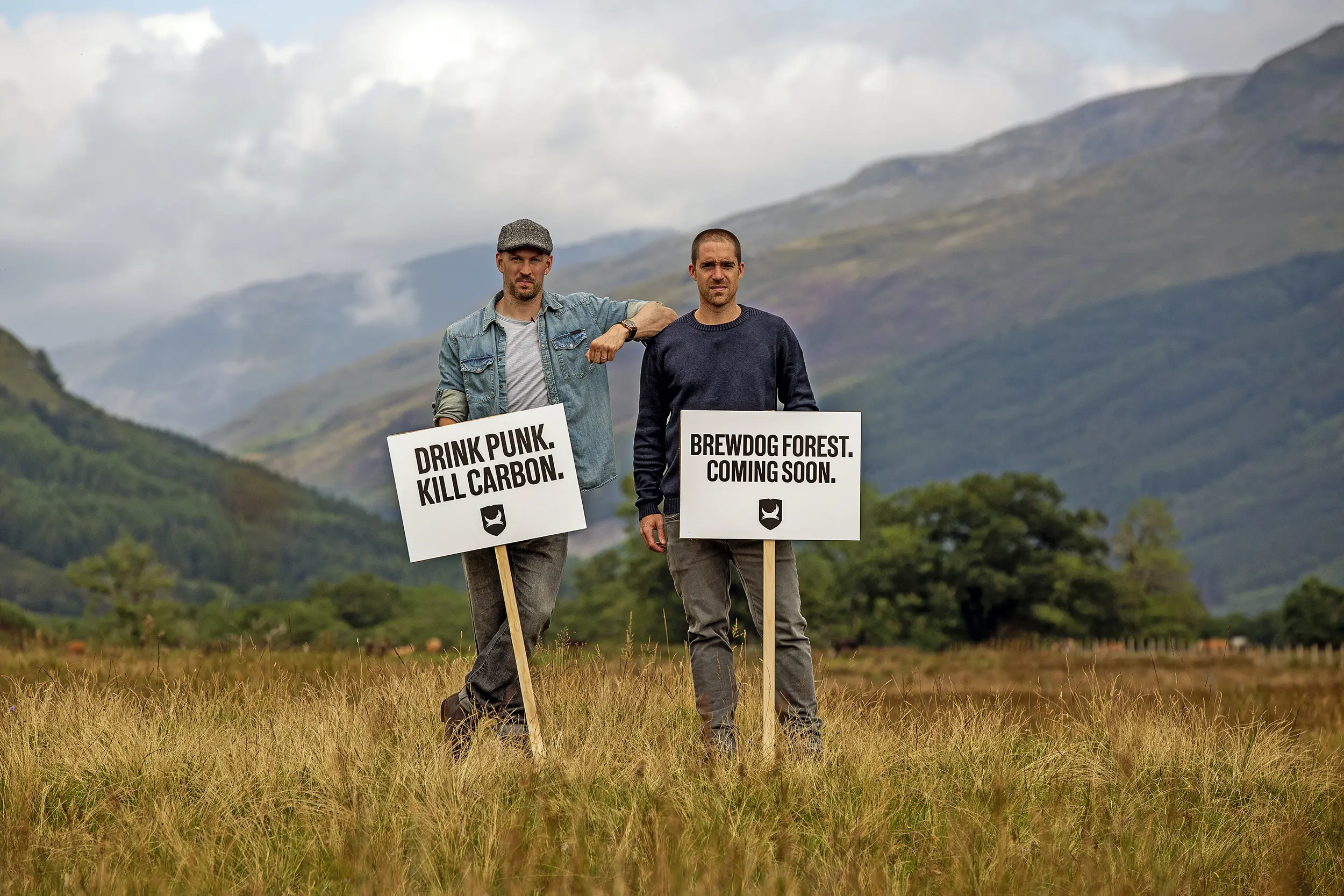
When breweries begin to look at sustainability, “not only are there savings on environmental impact, but there are also real financial savings,” said Gacioch. “When we look at sustainability, it also must be through the lens of financial impact because it’s not sustainable unless it’s financially sustainable.” And while many of these efforts often take an up-front investment, they often make more financial sense in the long run. “Most of the sustainability initiatives are also good for your wallet,” Devolder shared. “After a certain number of years, the investment is paid back and then you have access to these resources for free.”
The Brewers Association has noticed that economies of scale are a real thing, in that bigger breweries are able to be somewhat more efficient. However, “that’s not always the case,” said Gacioch. “Whoever is best in class for sustainability for small breweries is right on par with what some of the biggest breweries can achieve on a normalized level. What that tells me is that with the right amount of effort and knowledge and resources, sustainability isn’t just available to the biggest breweries. It’s something that all breweries can and, in my humble opinion, should pursue,” said Gacioch.
But where can breweries start? The Brewers Association has created an incredible benchmarking tool that is used by member breweries to track how they’re doing from a sustainability standpoint. “Breweries that are using our benchmarking tool for data management tend to have better performance than breweries who don’t use it. As the old adage says, you can’t manage what you don’t measure,” said Gacioch. In the tool they can create targets, track month-over-month progress and compare their progress and impact to that of their peer group. They also have an incredible library of sustainability manuals that offer ideas on ways to improve in each of these areas, from low-hanging fruit all the way up to major, large-scale undertakings.
When Matt Gacioch talks about what he wants to see in the brewing industry in the next five years, he hopes that sustainability will become less of the exception and more of an understood and incorporated part of the business in the craft beer sector. “Having it not exist on the fringe, but rather in the core business model, is where the real impact happens. It’s going to take success stories. The craft beer industry is incredibly collaborative. The breweries that have found success and have found a way to make sustainability work for them, sharing that will be huge. We want to ensure that all breweries have the resources and the inspiration for taking on these projects and seeing the importance of them.”
